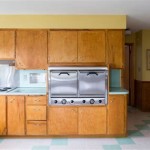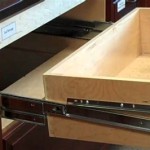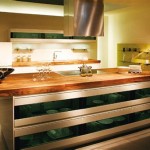Refinishing Kitchen Cabinets With Paint: A Comprehensive Guide
Kitchen cabinets are a focal point of any kitchen, and their appearance can greatly impact the overall aesthetic of the space. Refinishing your kitchen cabinets with paint is a cost-effective and transformative way to update your kitchen without replacing them. Here's a comprehensive guide to help you successfully refinish your kitchen cabinets with paint:
1. Preparation is Key
Thorough preparation is essential for a professional-looking finish. Start by emptying your cabinets and removing all hardware, including knobs, pulls, and hinges. Clean the cabinet surfaces thoroughly with a degreaser or TSP cleaner to remove grease and grime. Protect your floors and walls with a drop cloth or plastic sheeting.
2. Choose the Right Paint
Select a high-quality enamel or latex paint specifically designed for cabinets. These paints are durable, moisture-resistant, and offer excellent coverage. Oil-based paints provide a more durable finish but have longer drying times and require mineral spirits for cleanup. Latex paints are easier to clean up but may require multiple coats for full coverage.
3. Prime Your Cabinets
Primer creates a smooth, even surface for the paint to adhere to. Use a high-adhesion primer designed for kitchen cabinets. Apply a thin, even coat and allow it to dry completely before painting.
For cabinets in good condition, one coat of primer may be sufficient. For cabinets with significant imperfections or dark finishes, apply two coats of primer to ensure adequate coverage.
4. Painting Your Cabinets
Begin by painting the insides of the cabinets using a brush or small roller. This will prevent paint from dripping down the front of the cabinets when you paint them. For the fronts, use a brush for detailed areas and a roller for larger surfaces.
Apply thin, even coats, allowing each coat to dry completely before applying the next. Avoid thick coats, as they can lead to drips and runs. For best results, apply two to three coats of paint.
5. Sanding Between Coats
Sanding lightly between coats helps smooth out any imperfections and creates a better surface for the subsequent coat of paint. Use a fine-grit sandpaper (220- grit or higher) and sand with the grain of the wood.
6. Dry Time and Reassembly
Allow the painted cabinets to dry thoroughly following the manufacturer's instructions. Adequate drying time ensures that the paint has properly cured and is durable. Once the paint is completely dry, reassemble the hardware and doors.
7. Touch-Ups and Maintenance
After reassembly, inspect your cabinets for any imperfections or areas that require touch-ups. Use a small brush to apply paint to these areas and allow them to dry.
To maintain your refinished cabinets, clean them regularly with a mild detergent and water solution. Avoid harsh chemicals or abrasive cleaners. If any damage occurs, touch it up immediately to prevent further deterioration.
Refinishing kitchen cabinets with paint is a rewarding project that can transform your kitchen's appearance. By following these steps carefully, you can achieve a professional-looking finish that will enhance your kitchen for years to come.

Should I Paint Or Refinish My Kitchen Cabinets

Avoid These Mistakes How To Paint Cabinets That Are Already Painted Grace In My Space

Cabinet Refinishing Guide

How To Paint Kitchen Cabinets A Step By Guide Confessions Of Serial Do It Yourselfer

Needham Ma Cabinet Refinishing Repainting Services Me

Durable Kitchen Cabinet Painting 10 Year Warranty Columbus Oh

How To Paint Kitchen Cabinets Best Color Ideas Cost

Diy Painting Your Kitchen Cabinets The Right Way

The Pros And Cons Of Kitchen Cabinet Painting Refinishing Mastercraft Finishes

Should I Paint My Kitchen Cabinets
Related Posts








